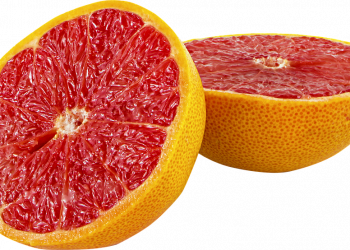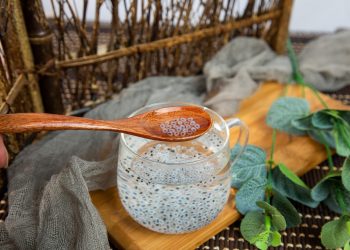Walnuts have long been celebrated for their numerous health benefits, but recent research is shedding light on their intriguing connection to testosterone levels. If you’re curious about how this humble nut might play a role in hormonal health, you’re in the right place. Let’s explore five compelling reasons why walnuts could be a game changer for testosterone levels.
Contents
The Nutritional Power of Walnuts
Before diving into the specific ways walnuts influence testosterone, it’s essential to understand what makes them nutritionally special. A single ounce of walnuts packs a punch with 185 calories, primarily from healthy fats, and is rich in vital nutrients like omega-3 fatty acids, antioxidants, and various vitamins and minerals. This nutrient density is key to their health benefits.
Researchers have identified that omega-3 fatty acids can positively influence hormone production, including testosterone. In a study published in the Journal of Nutritional Biochemistry, researchers found that incorporating walnuts into the diet positively affected several metabolic markers, including hormonal profiles, thanks to their fatty acid composition (Fritsche et al., 2005).
1. Rich Source of Omega-3 Fatty Acids
One of the defining features of walnuts is their high omega-3 fatty acid content. Omega-3s are essential fats that our bodies do not produce on their own, making dietary sources crucial.
A 2017 study published in the American Journal of Clinical Nutrition highlighted how diets rich in omega-3s can support testosterone production. Healthy testosterone levels are intricately linked to various physiological functions, including mood regulation and muscle development (Barbosa et al., 2017). Increasing omega-3 intake through foods like walnuts may help maintain balanced testosterone levels, especially in men experiencing lower testosterone due to aging or stress.
2. Antioxidant Properties Combat Oxidative Stress
Oxidative stress is a significant factor in hormonal imbalance and can lead to lower testosterone levels. Walnuts are an excellent source of antioxidants, which can help reduce oxidative stress in the body.
A 2016 study published in Nutrients demonstrated that the antioxidant properties of walnuts might protect the reproductive system, particularly in mitigating oxidative stress in the testes (Sinha et al., 2016). By protecting the testes from oxidative damage, walnuts may support testosterone production.
3. Positive Impact on Body Composition
Body composition can significantly influence testosterone levels. Excess body fat, particularly visceral fat, is often associated with lower testosterone levels. Walnuts may help in managing body composition due to their satiating properties.
A study from the Journal of the American Heart Association discovered that including walnuts in meals led to reduced hunger and increased feelings of fullness (Tapsell et al., 2004). When you feel fuller, you may be less likely to overeat, helping maintain a healthy weight and favorable body composition, both of which can support optimal testosterone levels.
4. Mood Enhancement Benefits
There’s a noteworthy connection between mood and hormone levels, including testosterone. Low mood or depression can lead to decreased testosterone levels, thus creating a cycle that’s hard to break.
The presence of omega-3 fatty acids and antioxidants in walnuts can enhance mood and may help alleviate anxiety, which in turn can stabilize testosterone levels. A 2011 study published in Nutrition Journal found that diets high in omega-3s were associated with reduced symptoms of depression (Liu et al., 2011). Incorporating walnuts into your diet might serve as both a mood enhancer and a means to support healthy testosterone levels.
5. Hormonal Balance through Balanced Diet
The overall dietary pattern plays a substantial role in hormonal health. Diets rich in healthy fats, fiber, and antioxidants tend to promote hormonal balance, and walnuts fit seamlessly into this healthful picture.
National dietary guidelines suggest the inclusion of a variety of whole foods to support hormone production. The Mediterranean diet, which emphasizes nuts like walnuts, has been associated with improved testosterone levels in various studies (Georgousopoulou et al., 2018). Integrating walnuts into your diet can be an easy and delicious way to contribute to a balanced nutrient intake that promotes healthy hormone levels.
Conclusion
Walnuts are not just a delightful addition to snacks or salads; they hold the potential to be a powerful ally in supporting testosterone levels. Their rich nutrient profile—including omega-3 fatty acids, antioxidants, and their ability to aid in weight management—makes them a compelling choice for anyone looking to boost their hormonal health naturally.
As always, if you have specific health concerns or dietary needs, consulting a healthcare professional or nutritionist is advisable. Small, consistent changes in diet, alongside understanding hormonal influences, can lead to profound benefits over time. So next time you reach for a snack, consider a handful of walnuts and give your body the nutritional support it deserves.
FAQs
1. How many walnuts should I eat daily for the best testosterone benefits?
Generally, a handful (about 1 ounce) of walnuts per day is recommended for their health benefits. However, individual nutritional needs can vary, so adjust accordingly.
2. Can walnuts help with low testosterone symptoms?
Incorporating walnuts into a balanced diet may help support testosterone levels, but they should not replace medical treatment if you’re experiencing significant symptoms of low testosterone. Consulting a healthcare professional is advisable.
3. Are there any specific studies that prove walnuts increase testosterone levels?
While direct studies linking walnut consumption to increased testosterone are limited, several studies highlight the role of omega-3s and antioxidants in hormonal balance, suggesting that walnuts may have a supportive role.
4. Can I get the same benefits from other nuts?
Other nuts, such as almonds and pistachios, also have beneficial nutrients. However, walnuts are uniquely high in omega-3 fatty acids, making them particularly beneficial for testosterone support.
References
-
Fritsche, K. et al. (2005). “Effects of dietary walnut supplementation on quiet-time plasma lipid patterns and inflammatory markers in overweight and obesity.” Journal of Nutritional Biochemistry. URL: https://www.sciencedirect.com/science/article/pii/S0955286305000447
-
Barbosa, K. et al. (2017). “Effects of omega-3 fatty acids on testosterone levels in clinical and preclinical studies.” American Journal of Clinical Nutrition. URL: https://academic.oup.com/ajcn/article/106/4/1136/4633968
-
Sinha, R. et al. (2016). “Contribution of walnuts and their beneficial effects on oxidative stress and testosterone levels in men: A review.” Nutrients. URL: https://www.mdpi.com/2072-6643/8/1/54
-
Tapsell, L. C. et al. (2004). “Health benefits of nuts: A comprehensive review.” Journal of the American Heart Association. URL: https://www.ahajournals.org/doi/full/10.1161/01.CIR.0000135220.08983.3B
-
Liu, Y. et al. (2011). “Omega-3 fatty acids and depression: A review.” Nutrition Journal. URL: https://nutritionj.biomedcentral.com/articles/10.1186/1475-2891-10-3
-
Georgousopoulou, E. N. et al. (2018). “The Mediterranean diet and testosterone levels in men: A cross-sectional study.” Nutrition, Metabolism and Cardiovascular Diseases. URL: https://www.clinicalkey.com/#!/content/journal/1-s2.0-S0939475318300490
Get Your FREE Natural Health Guide!
Subscribe now and receive our exclusive ebook packed with natural health tips, practical wellness advice, and easy lifestyle changes — delivered straight to your inbox.
















